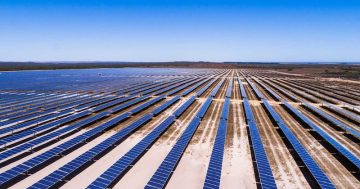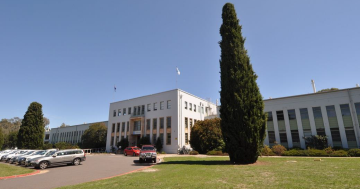
CSIRO boss Douglas Hilton has defended his agency’s research against attack from Federal Opposition Leader Peter Dutton. Photo: Supplied.
CSIRO boss Douglas Hilton has taken to penning an open letter to defend his institution’s research against criticism from the Coalition.
Federal Opposition Leader Peter Dutton took a strong swipe at the national science agency this week by questioning its research into nuclear power.
The highly respected CSIRO found that nuclear power would likely be the most expensive source of new energy for Australia’s future.
It recently released its latest GenCost report, which pointed to renewable energy, saying solar and on-shore wind projects would be the cheapest way to generate electricity into the future, even when factoring in the costs of maintaining the integrity of the power grid.
But Mr Dutton, a strong advocate for including nuclear power into the grid, questioned the reliability of the report – even describing it as “discredited”.
“It’s not relied on. It’s not a genuine piece of work,” the Opposition Leader said.
“It doesn’t take into account some of the transmission costs – the costs around subsidies for the renewables.”
He also said it was “well documented” that the CSIRO could not be relied on.
However, CSIRO’s research did in fact consider the costs of transmission as well as storage when undertaking its research, by including such ”integration costs” of the energy sources.
With all such factors taken into account, renewable energy was still the cheapest and nuclear energy the most expensive.
CSIRO’s chief executive officer was quick to publicly defend his organisation against unfounded political claims.
But he did not name Mr Dutton.
“Science is crucial to providing the data and models that allow society to tackle profound challenges; challenges like the COVID-19 pandemic, transition to net zero, keeping Australian industry productive and sustainable, and protecting our unique biodiversity,” Dr Hilton wrote on Friday (15 March).
“For science to be useful and for challenges to be overcome it requires the trust of the community. Maintaining trust requires scientists to act with integrity.
“Maintaining trust also requires our political leaders to resist the temptation to disparage science.
“As chief executive of CSIRO, I will staunchly defend our scientists and our organisation against unfounded criticism.
“The GenCost report is updated each year and provides the very best estimates for the cost of future new-build electricity generation in Australia.
“The report is carefully produced, its methodology is clearly articulated, our scientists are open and responsive to feedback, and as is the case for all creditable science, the report is updated regularly as new data comes to hand.
“The GenCost report can be trusted by all our elected representatives, irrespective of whether they are advocating for electricity generation by renewables, coal, gas or nuclear energy.
“No matter the challenge we are tackling, CSIRO’s scientists and engineers can be relied on by the community to work creatively, assiduously and with integrity.”
Mr Dutton in return defended himself, saying there was nothing disparaging about the comments he had made.
“My point is that we need to compare apples with apples,” he told the media.
“At the moment, that report that was released, it doesn’t take into consideration all of the costs around renewables.
“I’m strongly in favour of renewables, but we need to keep the lights on and we need to keep our prices down.”
The Coalition wants the moratorium on nuclear technology overturned and has a strategy to list six potential sites for reactors to be located in disused former coal stations.




















